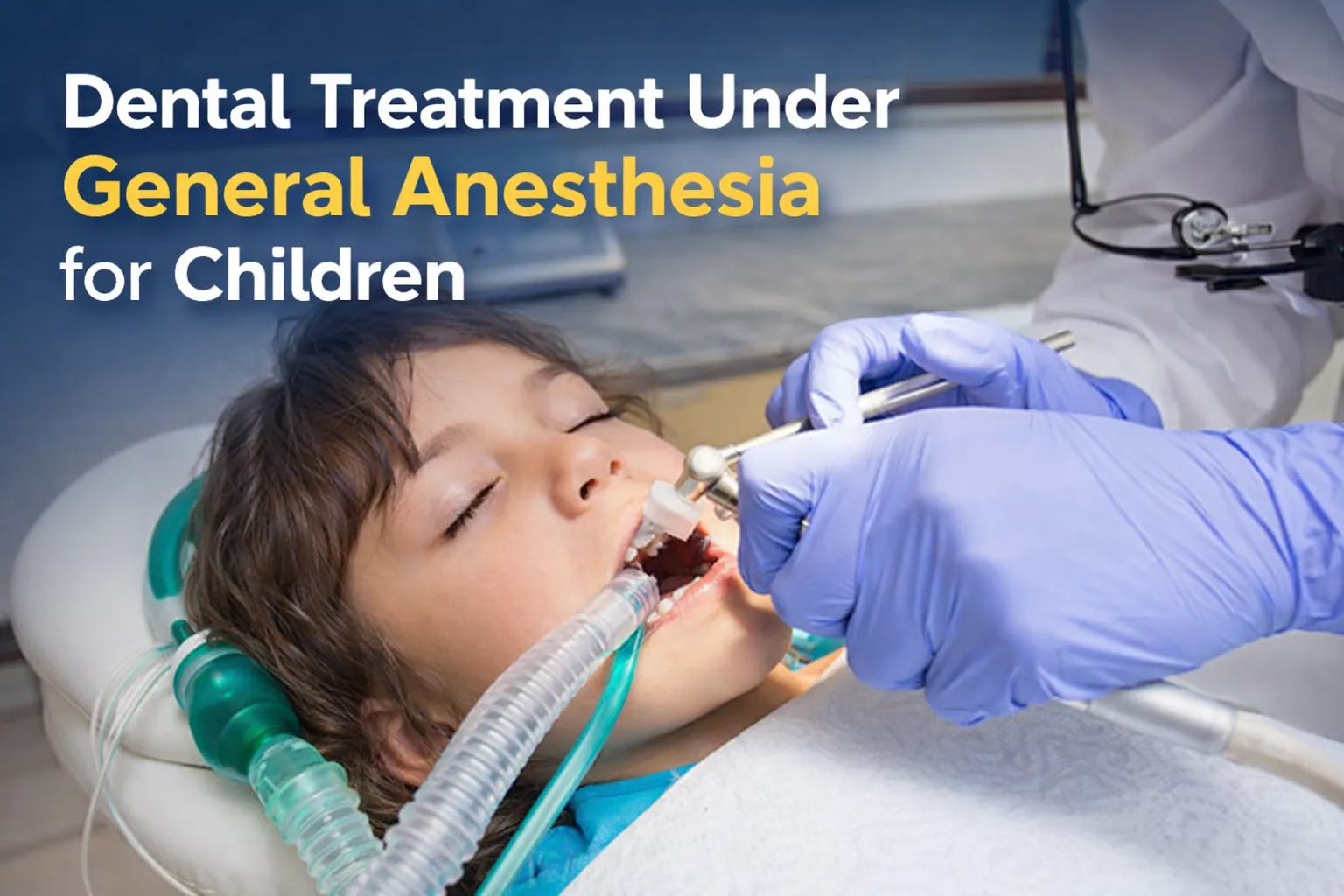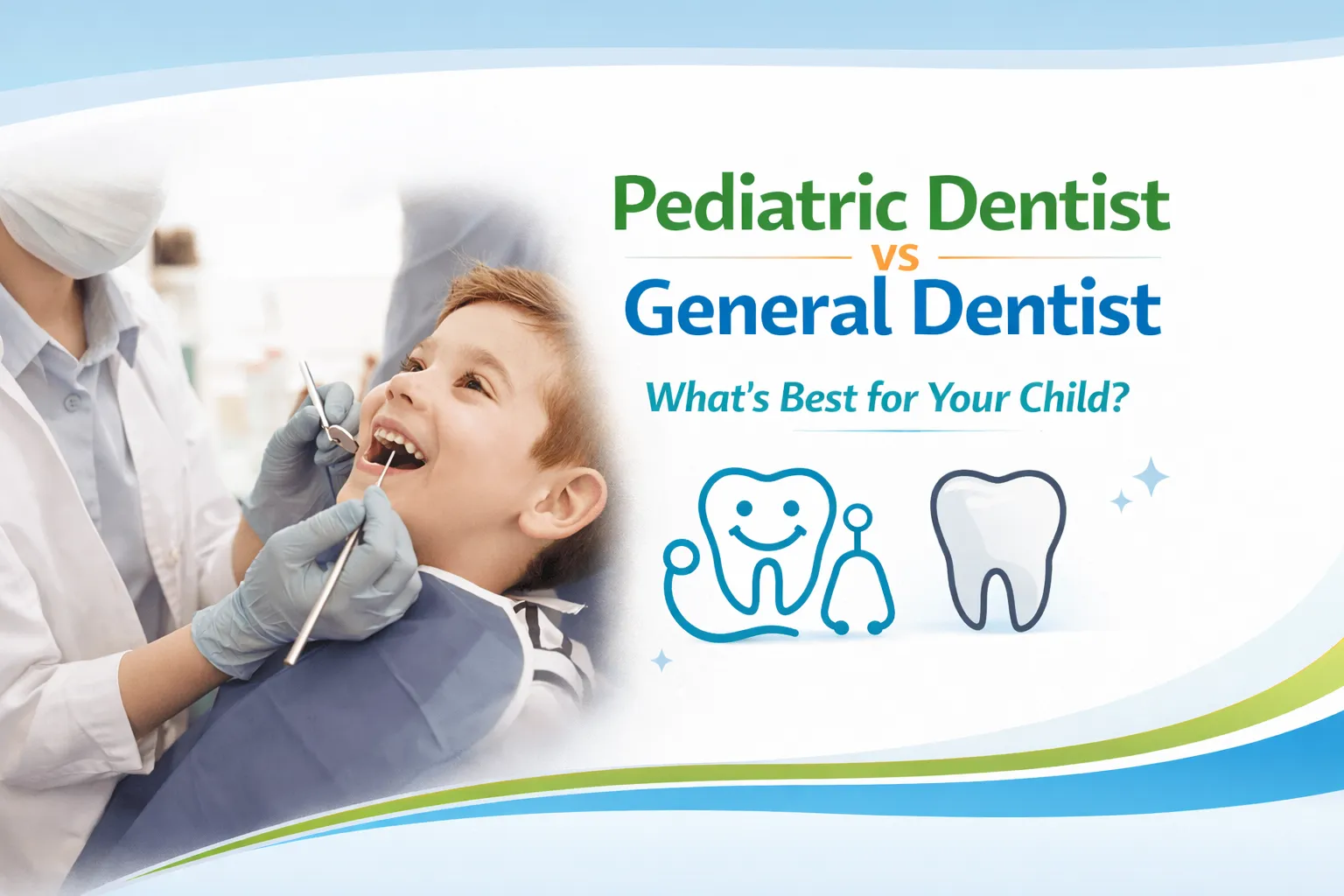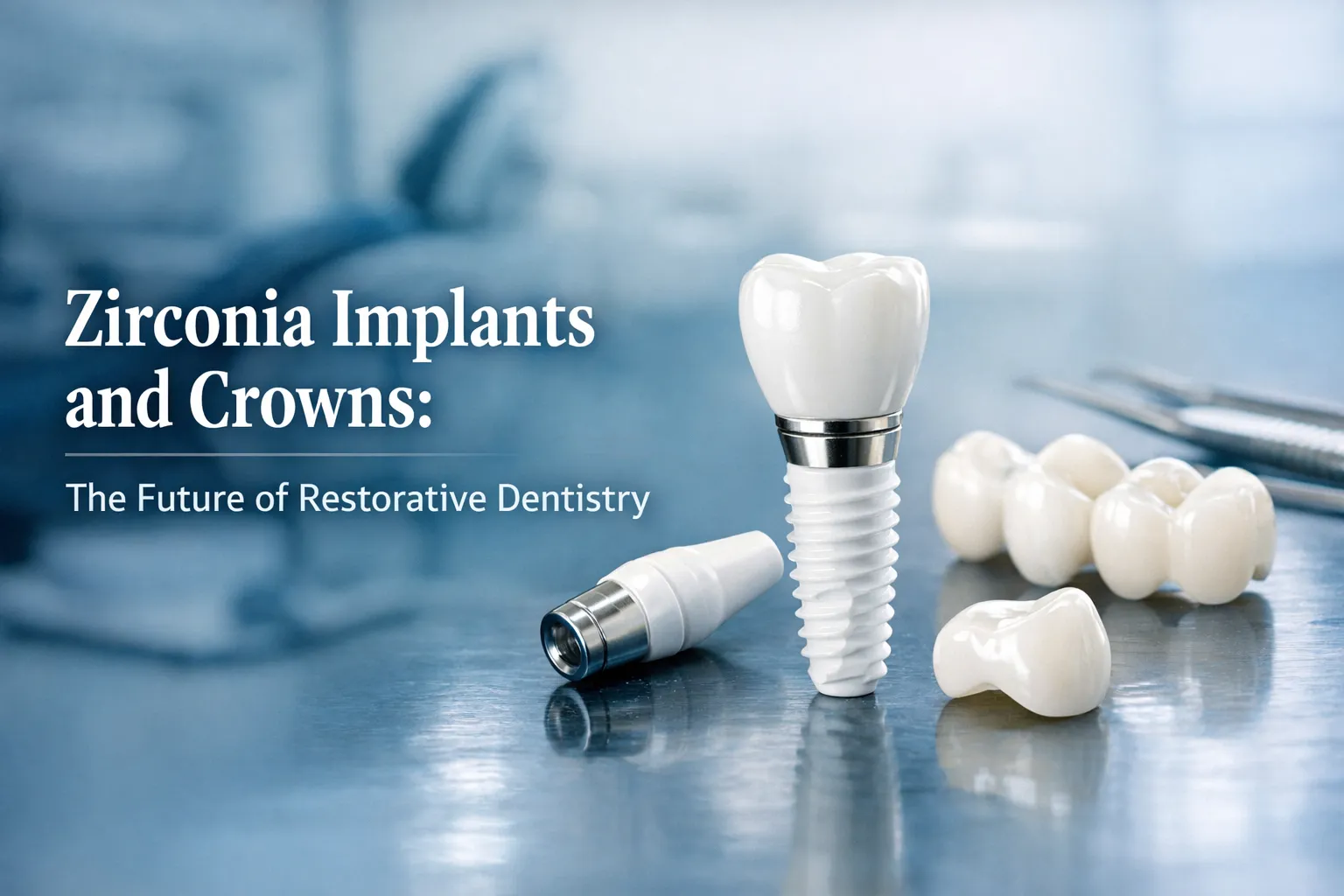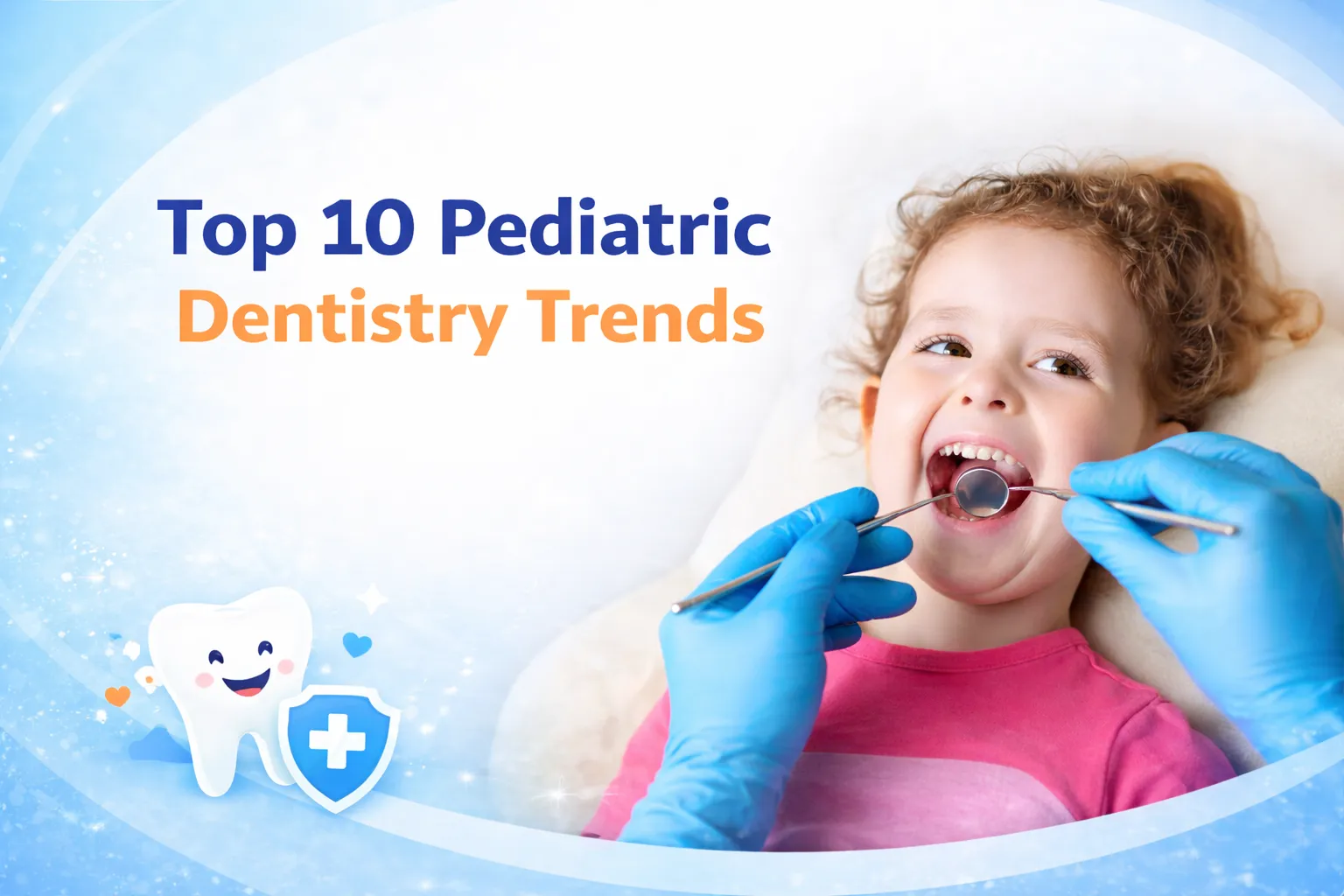ABSTRACT
Dental caries is an infectious and transmissible disease. The mutans streptococci (ms) are infectious agents most strongly associated with dental caries. infants acquire ms from their mothers and only after eruption of primary teeth. More recent studies indicate that ms colonize the mouth of pre dentate infants and that horizontal and vertical transmission occurs.
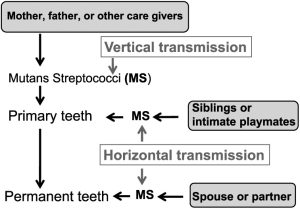
ACQUISITION
The mouth of a normal predentate infant contains only mucosal surfaces exposed to salivary fluid flow. (ms) could persist in such an environment by forming adherent colonies on mucosal surfaces or by living free in saliva by proliferation and multiplying at a rate that exceeds the washout rate caused by salivary fluid flow. The oral flora averages 2 to 4 divisions per day and swallowing occurs every few minutes. Due to this the bacteria cannot maintain themselves free in saliva by proliferation, but instead must become attached to an oral surface.
Management Of Precious Smile Of Your Child- Quadrant Dentistry…Read more….
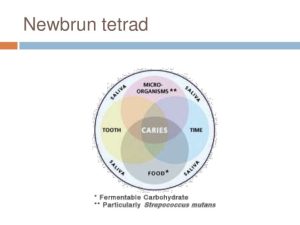
VERTICAL TRANSMISSION
It is the transmission of microbes from caregivers to the child. The major reservoir from which infants acquire ms in their mothers. Mothers with dense salivary reservoirs of ms are at high risk of infecting their infants early in life. So we should focus on getting a dental check up done for the expecting mothers itself.
HORIZONTAL TRANSMISSION
It is the transmission of microbes between members of a group (eg : family members of a sililar age or students in a classroom ). Eg : the use of a day care centre or a nanny may provide another vector for acquisition of these organisms.
HOW TO AVOID THIS KIND OF TRANSMISSION
- Reduce the ms reservoir in the mother, siblings and the infant’s caretaker by eliminating the active dental lesions and using agents such as fluorides and chlorhexidine and professional cleaning.
- Alter saliva sharing activities, such as tasting food before feeding and sharing toothbrushes.
- Twice daily tooth brushing of the dentate infant with an appropriate amount of a fluoridated toothpaste as suggested by us.
- Avoid decay promopting feeding behaviour.
- Oral health evaluation of the infant by a dental professional should occur before the 1st birthday.
- Lift the lip of the dentate child to catch them early.
CONCLUSION
- Primary oral infection by ms may occur in predentate infants
- Infants may acquire ms via vertical and horizontal transmission.
- Improvements in prevention of dental caries may likely be realized through intervention strategies that focus on the natural history of this infectious disease.
Frequently Asked Questions (FAQs)
1. What is vertical transmission of dental caries in infants?
Vertical transmission happens when cavity-causing bacteria (mainly Mutans Streptococci) are passed from a caregiver—usually the mother—to the baby through saliva-sharing, like tasting food or kissing on the lips.
2. What is horizontal transmission of caries?
Horizontal transmission refers to the spread of caries-causing bacteria between siblings, classmates, or children in the same environment, such as daycare or playgroups.
3. Can babies get cavity-causing bacteria even before their first tooth erupts?
Yes. Recent studies show that predentate infants can be colonized with Mutans Streptococci, meaning the bacteria can settle in the mouth before teeth erupt.
4. How do infants typically acquire Mutans Streptococci?
Infants usually acquire these bacteria from saliva contact with caregivers or family members. Since they cannot survive free in saliva for long, they attach to oral surfaces, including gums and eventually teeth.
5. Why is a mother’s oral health important in preventing early childhood caries?
Mothers with high bacterial levels in their saliva have a greater chance of infecting their infants early. Treating dental issues, reducing bacterial load, and maintaining good oral hygiene helps protect the baby.
6. How can families in Shivaji Nagar reduce horizontal transmission among children?
Avoid sharing utensils, bottles, or toothbrushes among kids. Ensure regular dental check-ups and maintain good oral hygiene for every child in the home.
7. How can parents reduce the Mutans Streptococci reservoir at home?
By treating active dental decay, maintaining daily brushing with fluoridated toothpaste, avoiding saliva-sharing habits, and following dentist-recommended treatments like fluoride or chlorhexidine when appropriate.
8. When should I take my baby for the first dental check-up in Pune?
A baby should visit a dentist before their first birthday or within six months of the first tooth eruption. Clinics like Vanilla Smiles Clinic in Shivaji Nagar offer early oral health assessments.
9. What feeding habits increase the risk of dental caries transmission in infants?
Night-time bottle feeding, frequent snacking, sweetened pacifiers, and continuous sipping on sugary drinks can increase bacterial growth and lead to decay.
10. How can parents identify early signs of tooth decay at home?
By using the “Lift the Lip” method. Gently lift the child’s upper lip to look for white chalky spots or yellow-brown areas on the teeth, especially near the gumline, and visit a dentist if any signs appear.
For more information kindly visit our website: https://www.vanillasmiles.dental/
Find clinic here: Get direction
Call Now: +919860633281
Address: Soni Capital, 2nd Floor, Near Shreyas Hotel, 1237, Apte Road, Shivaji Nagar, Pune, Maharashtra 411004 India

